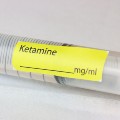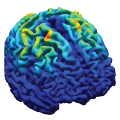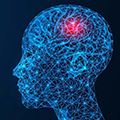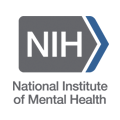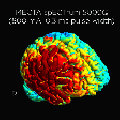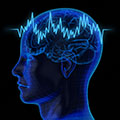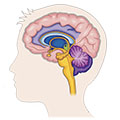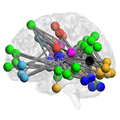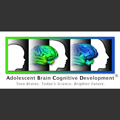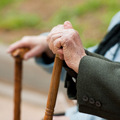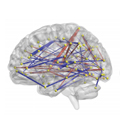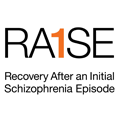Science Updates About Clinical Research and Trials
- Primary Care Can Play Key Role in Suicide Prevention
-
Adding suicide care practices to routine adult primary care visits reduced suicide attempts by 25% in the months after the visit.
- Improving Firearm Safety in Pediatric Primary Care
-
An automatic reminder supported by low-burden facilitation increased delivery of a universal secure firearm storage program during pediatric primary care.
- New Hope for Rapid-Acting Depression Treatment
-
A new study, funded in part by the National Institute of Mental Health, showed that a new medication derived from ketamine is safe and acceptable for use in humans, setting the stage for clinical trials testing it for hard-to-treat mental disorders like severe depression.
- Collaborative Care Could Help Reduce Disparities in Mental Health Treatment
-
In an NIMH-funded study, a comprehensive collaborative care intervention significantly reduced post-traumatic stress disorder (PTSD) symptoms among trauma patients from racial and ethnic minority backgrounds.
- Characterizing Childhood Irritability Across Ages and Stages
-
NIMH-supported research captures expressions of irritability across developmental stages via a clinically relevant measurement tool: the MAPS Temper Loss Scale.
- Novel Treatment Helps Children With Severe Irritability
-
A new study by NIMH researchers demonstrated the effectiveness, feasibility, and safety of exposure-based cognitive behavioral therapy for severe irritability and temper outbursts in children. The positive results set the foundation to continue exploring exposure therapy as a potential treatment for childhood irritability.
- Intervention Reduces Likelihood of Developing Postpartum Anxiety and Depression by More Than 70%
-
Results from a large clinical trial funded by the National Institutes of Health show that an intervention for anxiety provided to pregnant women living in Pakistan significantly reduced the likelihood of the women developing moderate-to-severe anxiety, depression, or both six weeks after birth.
- Magnetic Seizure Therapy as Effective as Electroconvulsive Therapy for Treating Depression
-
This clinical trial found that MST is equally effective at reducing depression symptoms as ECT, but with fewer side effects.
- Emergency Department Intervention Reduces Adult Suicide Risk
-
Evidence-based practices for suicide prevention effectively reduced suicidal behaviors among adults seen for care in emergency departments.
- Brief Cognitive Training May Extend the Antidepressant Effects of Ketamine
-
An NIMH-supported study suggests that a brief self-association training program can extend the effects of a single ketamine infusion by shifting people’s negative self-beliefs.
- NIMH Creates Publicly Accessible Resource With Data From Healthy Volunteers
-
The NIMH Healthy Research Volunteer Study aims to build a comprehensive, publicly accessible resource with a range of brain and behavioral data from healthy volunteers.
- New Approach Allows Magnetic Brain Stimulation to Target Deep Brain Structures
-
TMS can only directly stimulate the outermost layer of the brain, but NIMH researchers have found that mapping a person’s brain architecture may make it possible to guide TMS to deep brain targets.
- Clinical Decision Support System Reduces Cardiovascular Risk in Patients With Serious Mental Illness
-
A new study shows the use of a clinical decision support system to prompt the use of shared decision-making tools, such as handouts, may result in positive impacts on long-term cardiovascular health in patients with serious mental illness.
- Improved Emotion Regulation in Dialectical Behavior Therapy Reduces Suicide Risk in Youth
-
An analysis of clinical trial data shows that improvements in emotion regulation in youth at high risk for suicide who received dialectical behavior therapy (DBT) led to a reduction in self-harm behaviors.
- NIMH Addresses Critical Need for Rapid-Acting Interventions for Severe Suicide Risk
-
NIMH is working to meet the urgent need for rapid-acting suicide prevention interventions by supporting research investigating the feasibility and safety of treatment protocols that have the potential to quickly reduce severe suicide risk in youth and adults.
- Using Mobile Technology to Improve Care for Teens with Depression
-
In a project funded by the NIMH Small Business Technology Transfer program, researchers are investigating whether mobile technology can be used to create a passive monitoring system that can predict teens’ depressive symptoms and improve the quality of their care.
- NIMH’s Carlos Zarate Jr., M.D., Elected to National Academy of Medicine
-
Carlos Zarate Jr., M.D., chief of the Experimental Therapeutics and Pathophysiology Branch within the NIMH Intramural Research Program, has been elected to the National Academy of Medicine.
- Media Advisory: NIMH Researchers Available to Discuss Suicide Prevention
-
Experts from the National Institute of Mental Health are available to speak on topics related to suicide and suicide prevention, including the warning signs of suicide, suicide prevention methods, trends in suicide rates, how to find mental health help and support, and the latest in suicide prevention research.
- NIMH Leadership Describes Suicide Prevention Research Priorities
-
In a new paper, published in JAMA Psychiatry, NIMH looks forward, outlining the next stages in the Institute’s suicide prevention research priorities.
- Fast-Fail Trial Shows New Approach to Identifying Brain Targets for Clinical Treatments
-
An innovative NIMH-funded trial shows that a receptor involved in the brain’s reward system may be a viable target for treating anhedonia (or lack of pleasure), a key symptom of several mood and anxiety disorders.
- Combined Electroconvulsive Therapy and Venlafaxine a Well-Tolerated Depression Treatment for Older Adults
-
The use of right unilateral ultrabrief pulse (RUL-UB) electroconvulsive therapy (ECT) in combination with the antidepressant venlafaxine to treat depression in elderly patients is well tolerated and results in minimal neurocognitive side effects, according to a new NIH-funded study published in the American Journal of Geriatric Psychiatry.
- Transforming Mental Health Care Through ALACRITY
-
In 2018, 11.4 million adults in the United States experienced a serious mental illness, such as schizophrenia-spectrum disorders, severe bipolar disorder, and severe depression.
- Neural Signature Identifies People Likely to Respond to Antidepressant Medication
-
NIH-funded research uses machine learning algorithm to predict individual response to a commonly-prescribed antidepressant.
- Study Reveals Sex-Based Differences in the Development of Brain Hubs Involved in Memory and Emotion
-
Researchers have uncovered sex-based differences in the development of the hippocampus and amygdala—brain areas that have been implicated in the biology of several mental disorders that impact males and females differently.
- NIH Announces Funding Awards for National Early Psychosis Learning Community
-
NIMH awarded six research grants for studies to develop a learning health care system for the treatment of early psychosis.
- Mental Health Research Centers Forge Collaborations – with ALACRITY
-
Mental health research center directors emerged from a recent meeting with a renewed commitment to help each other achieve their common mission – to transform care of children, adolescents and adults with severe psychiatric disorders.
- Bench-to-Bedside: NIMH Research Leading to Brexanolone, First-Ever Drug Specifically for Postpartum Depression
-
FDA approval of the postpartum depression treatment brexanolone represents the final phase of a bench-to-bedside journey for this drug — a journey that began in the NIMH Intramural Research Program. NIMH experts are available to provide information on postpartum depression and the importance of, and the science underlying, this new drug.
- NIH Study Shows Many Preteens Screen Positive for Suicide Risk During ER Visits
-
A research team found nearly one-third of youth ages 10 to 12 years screened positive for suicide risk in emergency department settings, including those seeking help for physical concerns only.
- Hyperconnectivity in a Brain Circuit May Predict Psychosis
-
NIMH-funded scientists have discovered a pattern in the way a brain circuit works that may help predict the onset of psychosis. High levels of chatter, or “hyperconnectivity,” in a circuit involving the cerebellum, thalamus, and cortex emerged as a potential “neural signature” in a functional magnetic resonance imaging (fMRI) study.
- Targeted E-Health HIV Intervention Reduces STIs and Sexual Risk Behaviors
-
Findings from a new study suggest an electronically delivered HIV prevention intervention may be effective in reducing sexually transmitted infections (STIs) and sexual risk behaviors in young men who have sex with men.
- Therapy Reduces Risk in Suicidal Youth
-
A recent clinical trial of a psychotherapy called dialectical behavior therapy (DBT)—which has been shown to be effective in reducing suicide-related behavior in adults—showed that DBT can also reduce suicide attempts and suicidal behavior in adolescents.
- Intervention Shows Promise for Treating Depression in Preschool-Aged Children
-
Researchers funded by the National Institutes of Health have shown that a therapy-based treatment for disruptive behavioral disorders can be adapted and used as an effective treatment option for early childhood depression.
- NIH Releases First Dataset from Unprecedented Study of Adolescent Brain Development
-
The National Institutes of Health released to the scientific community an unparalleled dataset from the Adolescent Brain Cognitive Development (ABCD) study.
- Mood Stabilizing Medications an Effective Option for Older Adults with Bipolar Disorder
-
Two standard medications for bipolar disorder were effective in controlling symptoms at doses tailored to older people in a clinical trial of treatment in adults over age 60.
- Neuroimaging Technique May Help Predict Autism among High-Risk Infants
-
Functional connectivity magnetic resonance imaging (fcMRI) may predict which high-risk, 6-month old infants will develop autism spectrum disorder (ASD) by age 2 years.
- Pediatrics-based Brief Therapy Outdoes Referral for Youths with Anxiety and Depression
-
A streamlined behavioral therapy delivered in a pediatrics practice offered much greater benefit to youth with anxiety and depression than a more standard referral to mental health care with follow-up in a clinical trial comparing the two approaches.
- Recruitment Begins for Landmark Study of Adolescent Brain Development
-
The study will follow the biological and behavioral development of more than 10,000 children through adolescence into early adulthood.
- Electroconvulsive Therapy Lifts Depression, Sustains Remission in Older Adults
-
An individualized program of follow-up treatment with electroconvulsive therapy (ECT) combined with an antidepressant was effective in preventing relapse in patients 60 years and older who had had a successful initial course of treatment for severe depression.
- A BRIGHT Technological Future for Mental Health Trials
-
Is mobile mental health research the next frontier for smartphones? Based on Dr. Patricia Areán’s pioneering BRIGHTEN study, research via smartphone app is already a reality.
- Team-based Treatment for First Episode Psychosis Found to be High Value
-
Coordinated Specialty Care for First Episode Psychosis is Cost Effective


